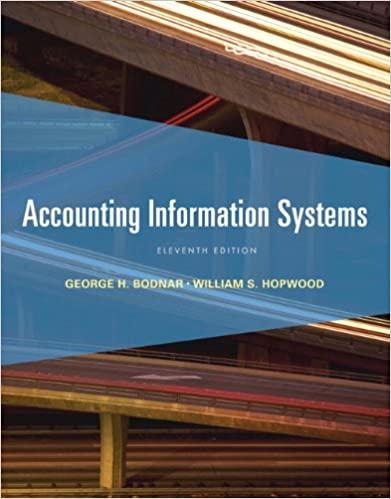1. It would be appropriate for the payroll accounting department to be responsible for which of the...
Question:
a. Approving employee time records
b. Maintaining records of employment, discharges, and pay increases
c. Preparing periodic government reports as to employees’ earnings and withholding taxes
d. Temporarily retaining unclaimed employee paychecks
2. Jackson, the purchasing agent of Judd Hardware Wholesalers, has a relative who owns a retail hardware store. Jackson arranged for hardware to be delivered by manufacturers to the retail store on a COD basis, thereby enabling his relative to buy at Judd’s wholesale prices. Jackson probably was able to accomplish this because of Judd’s poor internal control over
a. Purchase orders.
b. Purchase requisitions.
c. Cash receipts.
d. Perpetual inventory records.
3. Which of the following departments should have the responsibility for authorizing payroll rate changes?
a. Personnel
b. Payroll
c. Treasurer
d. Timekeeping
4. Which of the following constitutes the most significant risk within the purchasing cycle?
a. Receiving department personnel sign receiving documents without inspecting or counting the goods.
b. Large quantities of relatively inexpensive parts are stored in open areas near workstations to reduce production slowdowns.
c. Poor records of transfers between warehouses often result in unnecessary purchases and excess inventories.
d. Warehouse personnel do not compare quantities received to quantities shown on transfer tickets.
5. On receipt of a requisition, the store’s manager initiates a three- part purchase order. Two copies go to the vendor, and one copy stays in the stores file. On receipt of goods, the store’s manager matches the purchase order with the invoice and forwards them to accounts payable for payment. Which of the following statements best describes the internal control over purchasing?
a. Adequate internal control exists.
b. Inadequate separation of duties exists.
c. Inadequate control over accounts payable exists.
d. Inadequate control over the requisition process exists.
6. An appropriate compliance test to confirm that only valid employees are on the payroll is to ensure that
a. Separate personnel folders are originated for each new employee.
b. Payroll checks are delivered directly to each supervisor by the payroll clerk.
c. Personnel place names on payroll only on the basis of written, pre-numbered authorizations.
d. Payroll bank accounts are reconciled monthly to appropriate personnel.
7. Which of the following would be the most appropriate test to determine whether purchase orders are being processed on a timely basis?
a. Determine the dates of unpaid accounts payable invoices.
b. Compare dates of selected purchase orders with those of purchase requisitions.
c. Select a block of used purchase order numbers and account for all numbers in the block.
d. Discuss processing procedures with operating personnel and observe actual processing of purchases.
8. Which of the following procedures, noted by an auditor during a preliminary survey of the payroll function, indicates inadequate control?
a. All changes to payroll data are documented by the personnel department on authorized change forms.
b. Prior to distribution, payroll checks are verified to a computer- produced payroll register.
c. A separate payroll bank account is used, and payroll checks are signed by the treasurer and distributed by personnel from the treasurer’s office.
d. All unclaimed payroll checks are returned to the payroll clerk for disposition.
9. Proper internal control over the cash payroll function would mandate which of the following?
a. The payroll clerk should fill the envelopes with cash and a computation of the net wages.
b. Unclaimed pay envelopes should be retained by the paymaster.
c. Each employee should be asked to sign a receipt.
d. A separate checking account for payroll should be maintained.
Accounts Payable
Accounts payable (AP) are bills to be paid as part of the normal course of business.This is a standard accounting term, one of the most common liabilities, which normally appears in the balance sheet listing of liabilities. Businesses receive...
Fantastic news! We've Found the answer you've been seeking!
Step by Step Answer:
Related Book For 

Accounting Information Systems
ISBN: 9780132871938
11th Edition
Authors: George H. Bodnar, William S. Hopwood
Question Posted:





